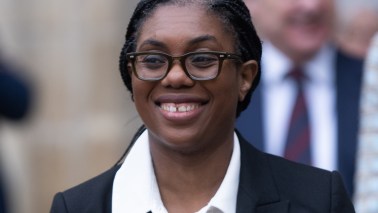Charles Thomson has achieved what I thought was impossible. He has provoked me to sympathise with the directors of Equitable Life: the gold braid, that is, on the bridge when the ship hit the iceberg. Our oldest life assurance office — set up in 1762, which made it Barings’ twin — had been holed below the waterline. I have not, until now, had a kind word to say for them. I accused them of trying to save the society’s skin at the expense of its reputation, and failing. After that failure, they were pushed overboard, and now their successors are trying to sink them. Next week, in the High Court, the Equitable will open its case against its former directors and auditors. Already the lawyers are ticking like gas-meters. They can see at least six months’ highly paid work spread in front of them, but this does not faze Mr Thomson, who is now the Equitable’s chief executive. ‘We can afford this trial,’ he says. So, in a sense, can Ernst and Young, who were the auditors. Theirs was the nearest deep pocket, so they could expect to be sued. The directors do not have pockets like this. They are a mixed batch, and one or two of them are well off, or used to be, but how can they contemplate a lawsuit where the defence costs alone have been quoted at £100 million? If they win, they will still have to feed the meter. If they lose, of course, they will be ruined.
Acting on advice
It is not apparent to me what the Equitable stands to gain by ruining them. If they were picked up and shaken until the last penny fell out, the policyholders would never notice the difference. Perhaps the insurers would pay — and, after this case, every other director will want more insurance — or perhaps the Equitable has been warned that if it does not go after them, someone else will try to go after it.






Comments
Join the debate for just £1 a month
Be part of the conversation with other Spectator readers by getting your first three months for £3.
UNLOCK ACCESS Just £1 a monthAlready a subscriber? Log in